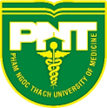Introduction In today’s health-conscious society, corporations play a pivotal role in promoting health literacy. By adopting comprehensive approaches to health literacy, businesses can contribute significantly to the well-being of their employees, customers, and the wider community. This blog explores various strategies corporations can employ to enhance health literacy and the benefits these initiatives bring.
Understanding Health Literacy in the Corporate World Health literacy in the corporate setting involves educating employees and stakeholders about health and wellness, providing resources for healthy living, and fostering an environment that supports health-conscious decisions. It extends beyond the workplace to include corporate responsibility in the products and services offered to consumers.
Strategies for Corporations to Enhance Health Literacy
- Workplace Wellness Programs: Implementing comprehensive wellness programs that include health screenings, fitness activities, and educational workshops can enhance employees’ health literacy.
- Health Information Dissemination: Corporations can use their communication channels to disseminate reliable health information, debunk myths, and promote healthy practices.
- Collaboration with Health Experts: Partnering with healthcare professionals to provide expert talks, health fairs, and consultations can offer employees direct access to credible health advice.
- Inclusive Health Policies: Developing policies that promote a healthy work-life balance, mental health awareness, and support for chronic illnesses can foster a health-literate and supportive workplace.
Benefits of Corporate Health Literacy Initiatives
- Improved Employee Health and Productivity: Educated and health-conscious employees tend to have lower absenteeism rates, increased productivity, and higher morale.
- Enhanced Corporate Image: Companies recognized for their commitment to health and wellness are often viewed more favorably by consumers, potential employees, and investors.
- Cost Savings: Investing in health literacy can lead to long-term cost savings by reducing healthcare expenses and improving workforce efficiency.
- Community Impact: Corporations that promote health literacy contribute to the overall health and well-being of the communities they serve.
Challenges and Considerations While implementing health literacy programs, corporations must be mindful of cultural sensitivities, privacy concerns, and the diverse needs of their workforce. Programs should be inclusive, voluntary, and respect individual health choices.
Conclusion Corporations have a unique opportunity to lead the way in promoting health literacy. By integrating health-conscious strategies into their operations, they not only enhance the well-being of their employees and communities but also reap benefits in terms of productivity, cost savings, and corporate reputation. As corporate entities recognize their role in shaping societal health perspectives, their commitment to health literacy becomes a powerful tool for positive change.
